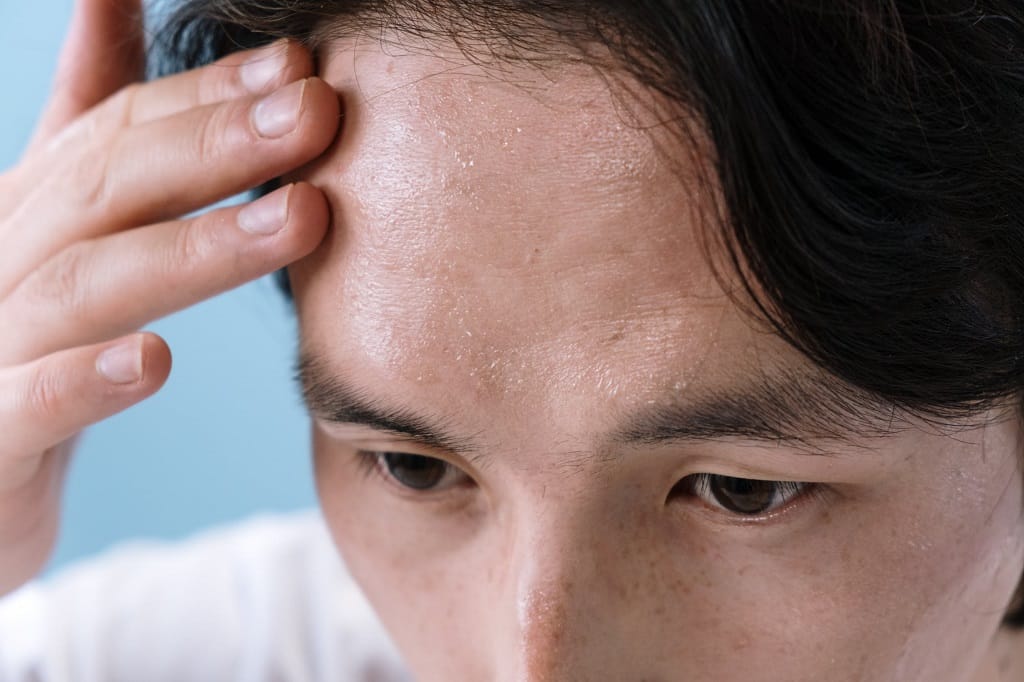Excessive sweating, known as hyperhidrosis, is sweating that is not caused by exercise or high temperatures. It can be a difficult and distressing condition to live with and can cause feelings of embarrassment as well as practical issues, such as having to change clothes frequently. If you suffer from excessive sweating, you’re not alone. It is a common condition and, fortunately, there are many ways that you can manage it.
You may need to experiment with different solutions to the issue and ensure you get a medical check-up to rule out any more serious underlying conditions. Here are some of the common causes of excessive sweating and some of the best ways to resolve them.

Rule Out Serious Health Conditions
Going to your doctor should be the first thing you should do when you notice that you are suffering from excessive sweating. They will be able to rule out any more serious health conditions. There are many causes for excessive sweating, and often it is no cause for concern. However, conditions such as diabetes can cause excessive sweating. Your doctor will be able to run tests to ascertain whether your sweating results from an underlying condition.
Reduce Your Stress Levels
Stress is a common cause of excessive sweating. If you are experiencing stress in your life, it is a good idea to find ways to overcome this. You could consider eliminating stressors from your life, switching jobs or seeing a licensed counselor or therapist to help you find healthy coping mechanisms for your stress.
Consider Your Hormones
Hormonal changes can cause sweating. This is most commonly seen during menopause or pregnancy. If this is the case, you could talk to your doctor, who will recommend lifestyle changes and medicines that could help manage your sweating.
Stay Hydrated
If you suffer from excessive sweating, it is vital that you remain hydrated. Sweating can quickly lead to dehydration, as we lose moisture from our skin. This, in turn, can lead to fatigue, thirst and nausea, which can exacerbate your sweating.
You can stay hydrated by drinking plenty of water and boosting your electrolytes with salty snacks or hydration tablets or powder. To learn more about how nausea and sweating can impact your health, look at this helpful article from Drip Drop for more information.
Keep Cool
Staying cool can be a helpful way to manage and reduce your sweating. It may help to keep a window open at night if you suffer from night sweats. You could also use bedding that is light to prevent becoming stifled in the night. If you live in a hot part of the country, investing in an air conditioning unit can be invaluable.
Wear Loose, Comfortable Clothes
Tight-fitting and synthetic clothes can make sweating worse. Wearing natural, breathable materials can be helpful to reduce sweating and keep your skin cool. It would be best if you wear loose-fitting clothes that give your skin room to breathe and avoid tight-fitting clothes like skinny jeans where possible.
Find The Right Antiperspirant
Antiperspirants come in all shapes and sizes. If you suffer from excessive sweating, it may be beneficial to choose a stronger antiperspirant that can help you manage your condition. Talk to your pharmacist about the over-the-counter options to help you reduce sweating, manage any odor, and keep you feeling fresh. It may take some trial and error to find the right antiperspirant.
Avoid Trigger Foods And Drinks
Some foods and drinks can trigger sweating in anyone. If you already experience excessive sweating, it can be beneficial to identify any food or drinks that trigger sweating so that you can avoid them. Some of the common culprits include spicy foods, alcohol, and caffeine.
You should consider making a diary of your eating habits and note down when you experience excessive sweating. You can then identify any possible patterns to your sweating related to your diet.
Wash With Gentle Soaps
It is best to avoid using harsh soaps when you experience excessive sweating. Using gentle soaps designed for sensitive skin can be ideal. It may feel natural to wash more often if you experience excessive sweating, but this can actually exacerbate the situation. It is best to shower once a day and avoid doing so more often. This can help remove dirt and sweat from your body without stripping your skin of its crucial natural oils.
Final Thoughts
Excessive sweating can be distressing to live with. It is important to talk to your doctor as soon as possible to rule out any underlying causes for your sweating. Once you have eliminated any underlying issues, you can focus on the trial and error of finding the solutions that work for your sweating. A mix of lifestyle changes, good antiperspirant and home temperature regulation can be the best way to resolve the issue of excessive sweating.

